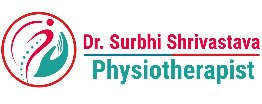Neurodevelopmental Therapy (NDT), also known as the Bobath approach, is a specialized rehabilitation technique designed to address and optimize the motor function of individuals with neurological conditions or disorders, particularly those affecting the central nervous system. Developed by physical therapist Berta Bobath and her husband, Karel Bobath, a neurologist, the approach focuses on the principles of neuroplasticity and aims to promote more typical movement patterns and postures. NDT is commonly utilized for individuals with conditions such as cerebral palsy, stroke, and traumatic brain injuries. Therapists employing NDT work closely with patients to assess their unique movement patterns and motor control challenges.

Benifit of Neuro developmental therapy (NDT)
 Neurodevelopmental Therapy (NDT) offers a range of benefits for individuals with neurological conditions. One key advantage is the focus on enhancing motor control and movement patterns through a holistic and individualized approach. NDT aims to promote neuroplasticity, encouraging the brain to adapt and reorganize itself to optimize function. By addressing specific impairments related to conditions such as cerebral palsy, stroke, or traumatic brain injuries, NDT helps individuals improve their coordination, balance, and overall motor skills. The hands-on techniques employed by therapists assist in retraining the neuromuscular system, leading to increased independence in daily activities.
Neurodevelopmental Therapy (NDT) offers a range of benefits for individuals with neurological conditions. One key advantage is the focus on enhancing motor control and movement patterns through a holistic and individualized approach. NDT aims to promote neuroplasticity, encouraging the brain to adapt and reorganize itself to optimize function. By addressing specific impairments related to conditions such as cerebral palsy, stroke, or traumatic brain injuries, NDT helps individuals improve their coordination, balance, and overall motor skills. The hands-on techniques employed by therapists assist in retraining the neuromuscular system, leading to increased independence in daily activities.
NDT also emphasizes the importance of functional activities and environmental modifications, allowing individuals to better navigate their surroundings. Through personalized interventions, NDT contributes to enhanced quality of life by promoting better posture, mobility, and overall physical well-being, empowering individuals to participate more fully in their communities.
Neuro developmental therapy (NDT) F&Q's
NDT primarily focuses on optimizing motor function in individuals with neurological conditions by addressing movement patterns, postures, and promoting neuroplasticity.
Neurodevelopmental Therapy is beneficial for a range of conditions, including cerebral palsy, stroke, traumatic brain injuries, and other disorders affecting the central nervous system.
NDT differs by its emphasis on individualized, hands-on techniques that target specific neurological impairments, promoting a more comprehensive and tailored approach to rehabilitation.
Neuroplasticity is a fundamental concept in NDT, as the therapy aims to harness the brain’s ability to adapt and reorganize itself, facilitating improved motor control and function in response to targeted interventions.
NDT interventions include hands-on guidance by therapists, specific exercises, and environmental modifications to enhance functional abilities, posture, and overall movement quality.
NDT contributes to an improved quality of life by addressing the underlying neurological impairments, leading to enhanced coordination, balance, and independence in daily activities, ultimately empowering individuals to participate more fully in their communities.
